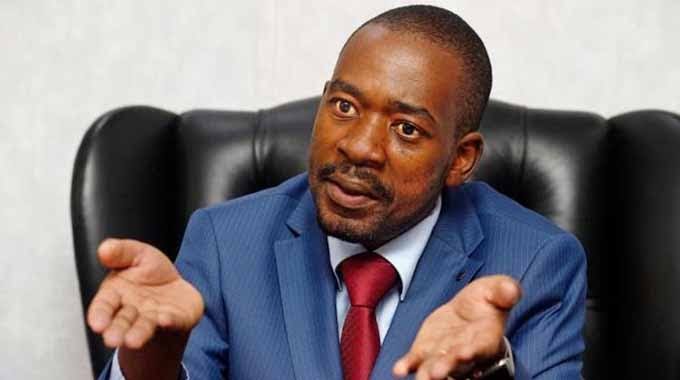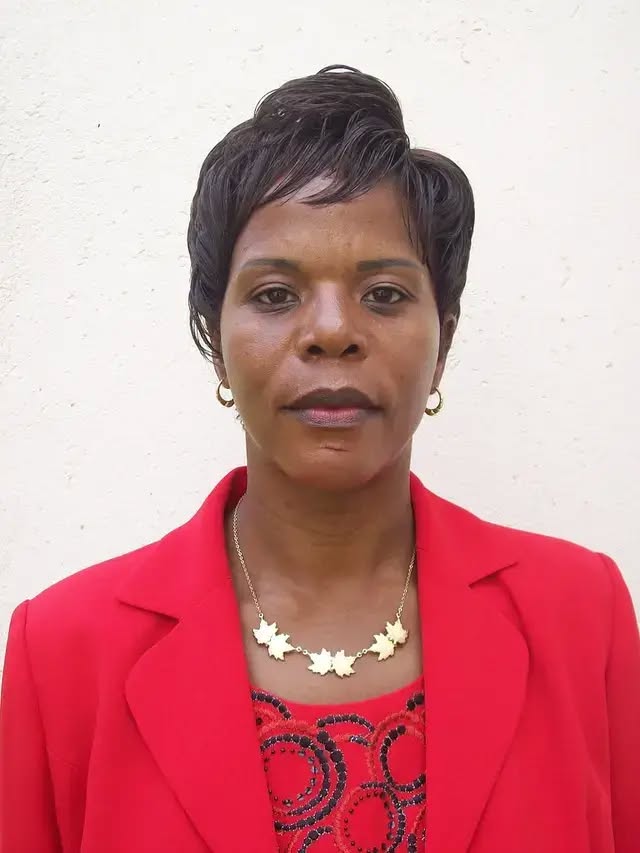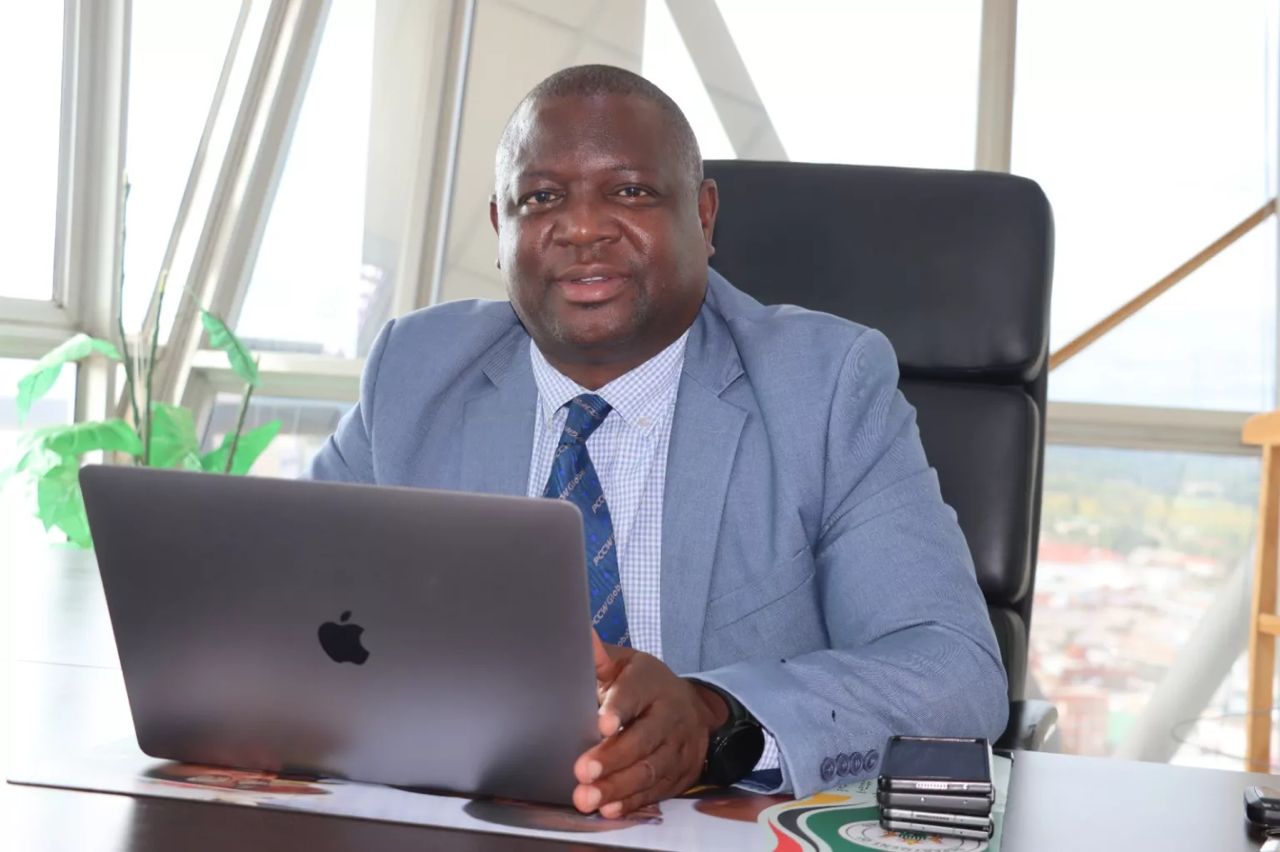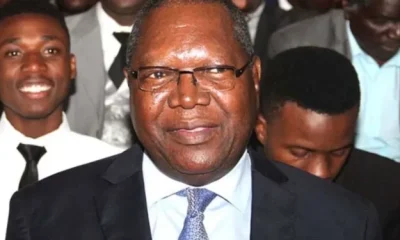Current Affairs
Public Office Is Not a Playground: Citizens Demand Leadership Reform

A growing number of Zimbabweans are calling for urgent legislative reforms to set minimum educational qualifications for councillors and Members of Parliament (MPs), as concerns mount over weak governance, poor service delivery and underperforming elected officials.
Currently, the requirements for one to hold public office in Zimbabwe are minimal—being a registered voter aged 18 or above. No formal education is required. However, many citizens now argue that this outdated legal standard is contributing to the erosion of leadership quality, especially at the local government level.
The issue took centre stage during a recent “This Morning on Asakhe” X-Spaces discussion hosted by the Centre for Innovation and Technology (CITE), where governance expert Rejoice Ngwenya stressed the urgent need for reforms.
“Councillors are the closest point of contact between citizens and government. They need to understand the issues they are dealing with,” said Ngwenya.
While he acknowledged that academic certificates alone do not guarantee integrity or good leadership, Ngwenya insisted that basic literacy and formal training are essential in helping leaders make informed decisions, read complex budgetary documents, and engage in sound policy formulation.
“It is not just about performance. It’s about capacity. Councillors and MPs must be literate enough to analyse budgets, bylaws, and policies. These roles demand critical thinking and legislative competence,” he added.
Ngwenya warned of the rise of career politicians who are more skilled in “praise-singing than problem-solving” and said education empowers leaders to be confident, assertive, and solutions-orientated.
Demand for Professionalism in Public Office
Participants in the discussion agreed that the quality of leadership across urban and rural councils is deteriorating due to the presence of underqualified individuals who lack the basic skills to perform.
Champion John cited the Harare City Council as a clear example of technical incompetence.
“Many councillors do not even understand financial statements. They cannot adopt basic technology like Enterprise Resource Planning (ERP) systems, which are critical for service delivery,” he said.
John explained that service delivery challenges such as water shortages, poor waste management, and bad roads—often stem from a lack of leadership capacity, not just budget constraints.
“Service delivery doesn’t happen by accident. It requires planning, knowledge, and coordination. We need leaders who can be trained and who deliver results,” he said.
Brighton Kunaka, another contributor, called for a shift toward merit-based leadership, saying qualifications encourage a culture of continuous learning and self-improvement.
“Schools exist for a reason. We must promote leaders who value education, not just populism. This is about investing in the future,” Kunaka said.
Education as a Tool for Better Policy Engagement
Beke Mguni, a political analyst, pointed out that many MPs fail to engage meaningfully during policy debates in Parliament because they lack the educational foundation to fully grasp complex legislative issues.
“How can MPs debate national policy if they cannot read or interpret legislation? Minimum qualifications are necessary to ensure meaningful participation,” she said.
Mguni also stressed that Parliament should not be reduced to a symbolic gathering of elected officials who cannot represent the interests of the people due to limited understanding of governance frameworks.
“We pass laws in Parliament, yet many MPs do not understand their role as lawmakers. If they had the right education, they would better serve their communities,” she added.
A Call for Balanced Reform
While most contributors supported the idea of a minimum qualification—suggesting at least two A-Level passes or a professional certificate they also emphasised the importance of soft skills, such as emotional intelligence, ethical leadership, and communication abilities.
Ngwenya concluded that beyond formal education, councillors and MPs should undergo structured training in policy, communication, and research as part of their public service induction.
“A good leader must know how to gather data, analyse it, and propose solutions. That is a skill that can be taught—and must be taught if we want results,” he said.
As public frustration over poor governance grows, the push for academic and professional standards in politics may gain momentum. However, translating this push into legislative change will require both political will and constitutional review.
Current Affairs
Chamisa Leaves Flock Behind

Former Zimbabwean opposition leader turned social media activist Nelson Chamisa has enrolled for a two-year doctoral programme at the University of Oxford, sources close to him have confirmed.
The development comes months after Chamisa announced his withdrawal from frontline politics, leaving many of his supporters uncertain about the future of the Citizens Coalition for Change (CCC), the party he founded in 2022.
A close associate told Hurumende News Hub that Chamisa’s decision to pursue studies abroad signals “a new chapter” in his life, while deepening questions about his long-term role in Zimbabwean politics.
“Chamisa has left his followers behind to focus on a PhD at Oxford. He believes this is the right time to reflect, retool, and prepare for new opportunities,” the source said.
Chamisa, once considered the face of opposition politics in Zimbabwe, shocked many in January 2024 when he announced he was stepping down as CCC leader, citing infiltration and lack of accountability within the movement.
Since then, he has maintained an active presence on social media, but his formal political activities have been minimal.
Chamisa, a lawyer and pastor by training, rose to prominence as a youthful protégé of the late MDC leader Morgan Tsvangirai.
He narrowly lost the disputed 2018 presidential election to President Emmerson Mnangagwa and has remained a polarising figure in Zimbabwean politics ever since.
His decision to leave the political stage has left many of his followers without clear leadership, with internal divisions continuing to fracture the opposition movement.
This Oxford enrollment could mark a permanent exit from active politics, while others believe he may return with renewed strategy and international clout.
For now, Chamisa’s political future remains uncertain, but his academic pursuit in the United Kingdom signals a definitive shift away from the turbulent terrain of Zimbabwe’s opposition politics.
Current Affairs
Nyamupinga: Prison Alone Not Enough, Castrate Rapists

A female legislator has sparked debate in Parliament after proposing the castration of convicted r@pists, especially repeat offenders, as a way to curb rising cases of s@xual violence.
Goromonzi West Member of Parliament, Beata Nyamupinga, raised the issue during Tuesday’s National Assembly sitting, urging lawmakers to urgently introduce tougher measures to safeguard women and children.
Her appeal came in the wake of two disturbing cases that drew widespread outrage the r@pe of a Grade 7 girl by a tout at Harare’s Rezende bus terminus, and a viral video showing two teenage boys allegedly gang-r@ping a 17-year-old girl.
“We are crying over the issue of rape. We are grieving as women of this country. The whole nation is not happy to see a grown man having s@xual intercourse with a young child,” Nyamupinga told Parliament.
She further encouraged her female colleagues to lobby President Emmerson Mnangagwa directly, stressing that traditional prison sentences were not enough since many offenders re-offend after release.
“Can we have something as a matter of urgency to ensure that if somebody is caught having s@xual intercourse with a minor, they should be castrated. If he maintains that manhood, he will not have the discipline to stop,” she argued.
Nyamupinga’s remarks received applause across the House, with many MPs acknowledging the seriousness of the issue.
Acting Speaker Joseph Tshuma condemned the abuse of minors as “incomprehensible and appalling” and advised Nyamupinga to introduce a Private Members’ Bill to push for tougher penalties, including possible life imprisonment for child r@pists.
“While Zimbabwe has abolished the death penalty, certain crimes, particularly the rape of minors, demand severe consequences,” Tshuma said.
Current Affairs
Masunda Fingered as Mastermind in NetOne CEO Fraud Storm

NetOne CEO Raphael Mushanawani is under arrest over US$1.2 million fraud allegations, but his lawyers say it is a “political hit job,” with Learnmore Masunda as the mastermind behind the arrest.
In a strongly worded letter to the Zimbabwe Anti-Corruption Commission (ZACC), Mushanawani’s lawyer, Admire Rubaya, dismissed the charges as fabricated.
“Our client is a victim in a well-orchestrated ploy to extirpate him from the helm of NetOne,” Rubaya wrote, adding that the accusations were linked to internal power struggles.
He claimed that some individuals eyeing Mushanawani’s position had “name-dropped very powerful individuals” but stressed that “there is no involvement of any such political figures.”
ZACC alleges Mushanawani engaged Lunartech Solutions (Pvt) Ltd to upgrade NetOne’s SAGE 1000 system without board approval, despite the company already having a US$3.5 million contract with Farevic Systems (Pvt) Ltd for a new Enterprise Resource Planning (ERP) system.
But the defense insists the upgrade was necessary and board-approved.
“An upgrade to SAGE L200 was imperative and a viable alternative to ensure continued operations and avoid hacking risks,” the lawyers argued, saying the two systems needed to run concurrently until the ERP was fully functional.
They further argued that the SAGE upgrade was part of NetOne’s 2025 Strategic Plan to modernise its technology infrastructure.
The lawyers also rejected ZACC’s claim that Mushanawani authorised fraudulent addendums worth US$1.2 million.
“The only payments made are US$184,800 and US$88,002.57,” the letter stated.
On the allegation that Mushanawani approved an unapproved US$79,467 consultancy deal with Diztech (Pvt) Ltd, the defense was equally dismissive.
“No contract was ever signed and not a dime has been paid,” the lawyers responded.
Concluding their defense, Mushanawani’s legal team said he was being unfairly targeted.
“Our client is being victimised for doing things right and acting in the best interests of his principal. ZACC must disregard the machinations of his detractors,” Rubaya added.
-

 Crime and Courts3 days ago
Crime and Courts3 days agoMasasi High School Abuse Scandal Sparks Public Outcry
-

 Crime and Courts7 days ago
Crime and Courts7 days agoKuwadzana Man Jailed for Reckless Driving and Driving Without a Licence
-

 Current Affairs2 months ago
Current Affairs2 months agoBreaking: ZIMSEC June 2025 Exam Results Now Available Online
-

 Current Affairs1 month ago
Current Affairs1 month agoMunhumutapa Day: Zimbabwe’s Newest Public Holiday Set for Annual Observance
-

 Current Affairs4 weeks ago
Current Affairs4 weeks agoGovernment Bans Tinted Car Windows in Nationwide Crime Crackdown
-

 Current Affairs6 days ago
Current Affairs6 days agoVehicle Emissions on the Rise in Harare, A Growing Concern
-

 Current Affairs2 weeks ago
Current Affairs2 weeks agoExposed: Harare GynecologistChirume Accused of Negligence, Extortion, and Abuse
-

 Current Affairs2 months ago
Current Affairs2 months agoNo VP Change: Government Rejects Mutinhiri Appointment Rumours



